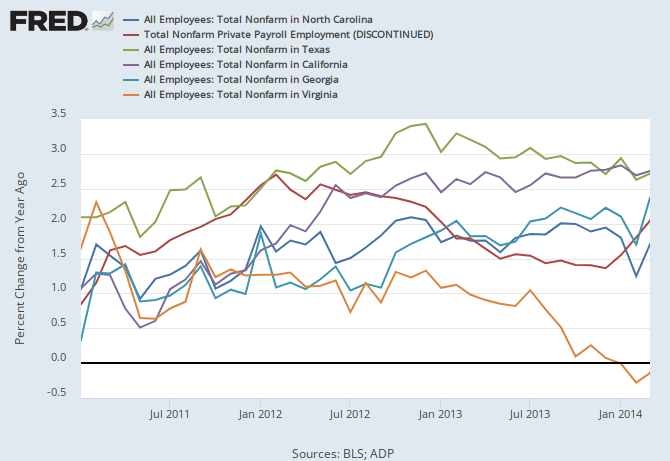The labor force is a number defined by people who are working or actively looking for work. If you are in the labor force you are either employed or unemployed. If you are not working and not looking for work you are not in the labor force. Unemployment rate is #unemployed divided by labor force.
http://www.bls.gov/cps/cps_htgm.htm;
http://en.wikipedia.org/wiki/Unemployment
If a bunch of unemployed people drop out of the labor force, the top and bottom numbers in that division problem will both change. Let's say, just for example, that there are 200,000 unemployed out of 1,000,000 labor force = unemployment rate of 20%. Obviously, this means that 800,000 people have jobs.
Just for illustration purposes, let's say that in one month 100,000 people, all unemployed, stop looking for work and no employed people retire or die. The calculation would change to 100,000/900,000 = 11%. There are still 800,000 employed people. The unemployment rate is cut nearly in half, but 0 jobs were created.
Now nothing that dramatic or clear cut happened in North Carolina. Clearly jobs have been created in North Carolina in the past several months and that's a great thing. It is also pretty clear that the labor force has declined, or at least has stagnated and certainly is not rising at the rate of some other states like California and Texas. Those numbers are open to examination and you can find alternative analysis on why. I simply googled "north carolina labor force and unemployment insurance" and got this page of results, you can all read more about it if you want to.
https://www.google.com/search?q=north+carolina+labor+force+and+unemployment+insurance&rlz=1C1CHMO_enUS504US504&oq=nor&aqs=chrome.1.69i57j69i59j69i65l3j69i59.2048j0j7&sourceid=chrome&es_sm=122&ie=UTF-8
That's the statistical side of it. The political side of it is Phil Berger wants to give himself the credit for all the jobs created, but doesn't want to take responsibility for the decline in the labor force (or even acknowledge that it exists). My personal take on it is that the NC GOP policies, especially those policies generally cited as "pro growth" such as slashing taxes on the wealthy and out-of-state corporations, have barely begun and it is disingenuous to give them credit for the jobs created. What is really happening is a general overall economic recovery, more jobs in every state, and a rising tide is lifting all the boats, Phil Berger's included.
I think it is equally disingenuous to pretend that ending UI benefits had no impact on labor force participation, since the definition of being in the labor force is "looking for work" and that is also a principal requirement for receiving UI. I don't think that the labor force decline can be pinned completely on the end of UI benefits - NC has an aging population and a lot of rural areas without opportunity and I think that has a significant impact on the situation as well. Scholars will probably write papers for a few years trying to hash that out since it is (obviously) a political football.


